- The average American spends more time planning a 2-week vacation than choosing their career!
- The survival market has grown big enough that it is possible for a talented and passionate individual to earn a living at it.
- Your sweet spot is where your area of passion (survival) overlaps with areas of talent and money. Find that spot and you have a starting point.
- Bootstrap your business yourself instead of taking out a loan or taking on a partner, otherwise you’re just fooling yourself that you “own it.”
- Virtual business models offer maximum freedom, minimum headaches, minimum capital requirements and maximum profit potential.
How Long Do Most People Take to Choose a Career?
When I started college, I took a career exploration class and learned that the average American spends more time planning a two-week vacation than choosing their career! While it’s perhaps not surprising given that people tend to take the path of least resistance, it’s certainly a reactive way to live life.
Every year, I meet hundreds of survival enthusiasts who share one thing in common: a passion for survival. They often tell me they dream of working in survival one day. Some even have their foot in the door and already own businesses in the field of survival/self-reliance, but they usually tell me they’ll never be able to leave the day job because they couldn’t make enough money in the field to meet their financial obligations and responsibilities.
I identify strongly with them because, until about 7 years ago, I was one of them. Like most Americans, I was working for the weekend and spending my money on my hobbies. I spent my free time on the shooting range, in the desert, socking away food storage and modifying my gear, but I worked outside the field of survival full-time.
Evolution of the Survival/Self-reliance Market
Through about the 1990s, there wasn’t much of a market for survival outside of military SERE instructors and a handful of private survival schools and they were nothing like they are today. In those days, the entire industry struggled to support a single publisher and a couple of magazines.
In the ’90s the market got even worse. The White House of that day led the feds on an all-out offensive against all things survival-related. Federal agencies paid informants to infiltrate survival groups and to entrap survivalists. The homes of survivalists were raided, their gear was put on public display in their front yards and they have paraded around in handcuffs. The media were told that gun collections were arsenals and that survivalists where racist domestic terrorists. While the government lost key cases against survivalists, most were eventually exonerated and some even paid damages, some were killed, and others were jailed. In the end, most of us who were survivalists back then were driven underground and the smear campaign turned the word “survivalist” into a pejorative.
Then, after the turn of the century, people began paying the price for engineering fragility into our world. The bill came due in the form of a decade of Black Swans, increasing interest in emergency preparedness. 9/11, the GWOT, hurricanes, earthquakes, tsunamis, Fukushima, the 2008 financial crisis, floods, blizzards, drought, and heatwaves all raised awareness of the need to prepare for the unexpected. Over
Hollywood’s instinct was to attempt to capitalize on what they perceived to be fear, and they created movies and TV like the Doomsday Preppers TV series. Instead of portraying emergency preparedness as the responsible and rational response to volatility that it is, the show’s format forced those appearing on it to irrationally claim to prepare for some singular threat to the exclusion of all others. While the show may have been entertaining and commercially successful in the eyes of producers, at least some of the participants appear to have been selected based on comedic entertainment value and at least one participant claimed a producer offered her money to say something she had refused to say.
Fortunately, Hollywood’s attempt to cast survivalists as comical, dangerous, and mentally-disturbed backfired. Hollywood miscalculated, resulting in the happy accident of drawing millions of new preppers to the survival/self-reliance movement; happy both because it forced producers to change strategies and because it was good for the movement. Suddenly, there was a new survival show every month or so and some of them treated the subject of survival in an unbiased manner. The pendulum of public perception eventually swung back in the other direction and primitive survival skills, at least, began to receive favorable media coverage again. For the first time in a long time, people didn’t mind being called survivalists.
The decade of disaster and no shortage of future challenges caused the survival market to grow rapidly. At the same time, the internet and social media connected people with others who shared their same passions, including survival. This created business opportunities in online content, survival fiction, and niche sales of specialized survival gear on a scale the survival market hasn’t seen before. The same market that struggles to support a single publisher and a couple of magazines for decades now boast TV shows, expositions, schools, hundreds of makers of purpose-built gear, dozens of magazines, and even more websites.
Find Your Sweet Spot
When you’re passionate about your work, you don’t wake up and wish you didn’t have to go to work. In fact, most people pay to pursue their passions. In some cases, they pay a lot. But as wonderful as it is to do at what you’re passionate about, passion isn’t enough. You also need to be talented enough at it to get paid to do it and for there to be enough of a market out there for you to make enough money to live.
I first learned about finding your sweet spot from an author named Joe Pulizzi in Content Inc., but I’ve since learned more about the concept from Dan Miller and even noticed a quote on the essence of the idea that was attributed to Buddha, so I want to make sure everybody gets the credit they’re due and I don’t leave anybody out … but according to Dan, if you have:
- Passion & Talent without Money, you have a Hobby.
- Passion & Market (Money) without Talent, you have Failure.
- Money & Talent without Passion, you have failure in life or Death.
Pulizzi expressed Passion and Talent (which he described as what you are knowledgeable about or good at) as two circles and described the area where they overlap as the sweet spot. So, if we add a third circle for Money, the area where the three circles overlap would be the Sweet Spot.
- Passion + Talent + Money = Sweet Spot
If you can find a niche where your own passion and talent intersect with enough of a market to make enough money to live on, then you’ve found your sweet spot. It’s possible that Pulizzi may have left out the market or money part intentionally since it’s tough to find a niche that’s too specific in online content, whereas it’s easy to find one that’s too general. If you blog about survival, that would be so general that you’d be competing with every other survival-related site online in English. For example, if you write or blog, his advice is to choose a niche that is very specific where you can be “The” expert on that very specific topic.
I agree with Mr. Pulizzi. If you create a blog on some obscure aspect of primitive survival skills, such as atlatls (spear throwers), you could become the number one atlatl blogger in the whole world if you really stuck with it for a year or two. You could be the “atlatl guy” and probably find a great atlatl-related domain. Whereas, if your goal is to create the number one rated survival site simply because you think you are that much better at every aspect of survival than every other survival instructor on the planet, you are bound to fail.
Bootstrapping a Business
While I agree that online content businesses must be specific, there must be enough market out there for your business to make a living. Until you can make enough money at it to support your family, you’ve got a hobby, not a business.
Until your business is profitable, I suggest you fund it yourself, which is called bootstrapping. If you must work two jobs to make it happen, do it. If both you and your spouse need to work for a year, do that. If you are short on capital, cut out unnecessary expenses. Most households pay for conveniences they really don’t need and only serve to increase the amount of work they must do to support themselves or decrease their savings.
Any of these options is better than taking out a loan or bringing on a partner. If you take out a loan, you won’t own your business, your creditors will, and silent partners only stay silent as long as you’re making them money. Skip a beat and they’ll get very vocal. Before you enter into a partnership, understand that only one in twenty partnerships works and it’s a great way to ruin a perfectly good relationship. I wouldn’t enter into a partnership with family or friends. I started another business as a partnership and it was one of the one in twenty that worked, but I still ended up buying out my partner.
The Benefits of an Online Business
You don’t need a lot of capital to start a virtual business compared to a brick and mortar business. After owning a brick and mortar business for almost 14 years, I was able to more fully appreciate the beauty of a virtual business:
- Work from Anywhere – As long as I can connect to the internet from time to time, I can work wherever I want … camping in the mountains, boating at the lake or lounging on the beach in Brazil. Some virtual businesspeople take this to the extreme and become digital nomads without a permanent residence. “They roam the earth having adventures like Qui Chang Cain in the TV series Kung Fu” or Jack Reacher. The catch is that they must film those adventures, take photos, write about them and sell the content, or access it, online.
- No Employees – Not having employees means you don’t have to match their FICA or pay any payroll taxes at all. It also means don’t have pay for insurance, paid vacation, and will never have a wrongful termination suit or any employee-related suit filed against you.
- No Rent – You don’t have to pay for a building, cleaning service, liability insurance, alarm monitoring, furniture, phone system, computer network, or even a water cooler.
- No Physical Product – If you sell services, memberships, or intellectual property such as software, ebooks or articles, the cost of doing business goes down even further because you don’t need to buy manufacturing equipment or pay for the materials that would go into a physical product. You also don’t have to store it, pack it, ship it, or fix it if it breaks. Not only do the costs decrease, but the potential profit increases. Whether you sell one unit or ten billion units, your cost is essentially the same. If you sell a service, you may not even have to collect sales tax.
The Benefits of Self-Employment
Self-employment certainly isn’t for everyone, but there are plenty of benefits, especially for survivalists.
- Privacy – Writing using a pen name gives writers legitimate reasons anyone can understand to compartment identities, to handle cash, to not receive mail at PO Boxes and commercial mail receiving businesses instead of at home, and to create LLCs to own vehicles and real estate. How do you think celebrities hide from the paparazzi and stalkers? They use LLC’s in states that respect privacy and hire assistants whom they pay to act as designees or proxies. The designee then sets up utilities and rents hotel rooms in his or her own name. Conversely, when you apply for a job, the process typically begins with you providing photo identification, a social security number, and other sensitive information to a prospective employer who may or may not protect it. The larger that employer is, the larger target they are for hackers. If Sony and Chase are vulnerable, your employer may also be susceptible.
- Security – Working from home can make your home more secure if it’s occupied during work hours. Your pattern of life also becomes more difficult to predict because you determine your own schedule. You also run into fewer obstacles to carrying concealed while you work.
- Work Environment – The most frequent reason people quit their jobs isn’t the pay. In fact, according to recent surveys, money isn’t usually in the top ten reasons people look for a new job. People more often quit over their relationships with their bosses, because they don’t feel challenged, they don’t feel like they are using their skills, they lack autonomy, they are doing the work of underachieving coworkers or because they don’t feel respected or appreciated. For the self-employed, these are non-issues.
- Control Your Work/Life Balance – A mentor once told me, “On their deathbed, people don’t wish they’d spent more time at the office.” What might be on your list? Will you wish you had gone somewhere, done something, or spent more time with someone? When you’re your own boss, you decide your own priorities and determine your own calendar.
- Success – There is no glass ceiling or limit to advancement when you are your own boss and you choose what title goes on your business cards.
- Freedom – The freedom that comes with self-employment gives wings to some, but if you lack direction, vision, or need someone to hand you a job description to give you structure and tell you what to do, you may wander hopelessly off course.


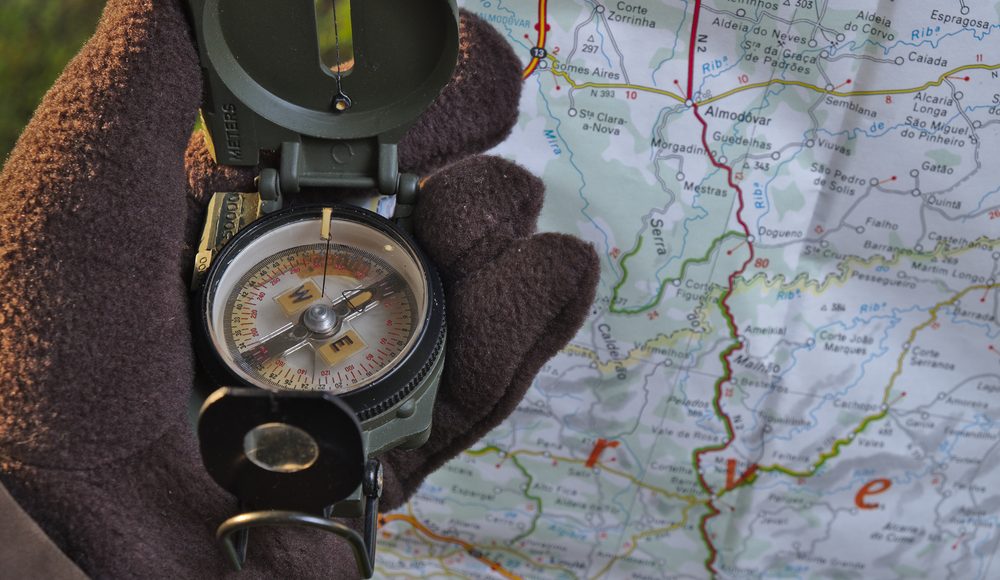

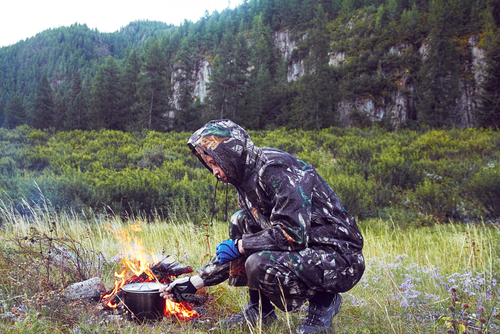
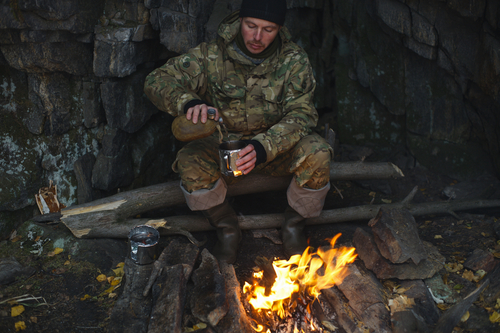
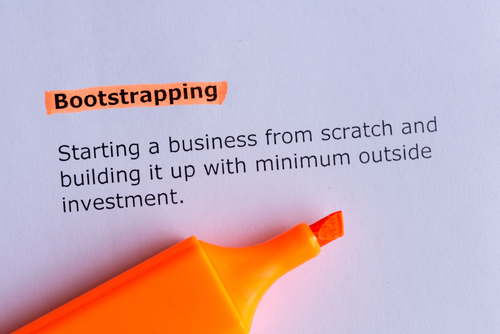



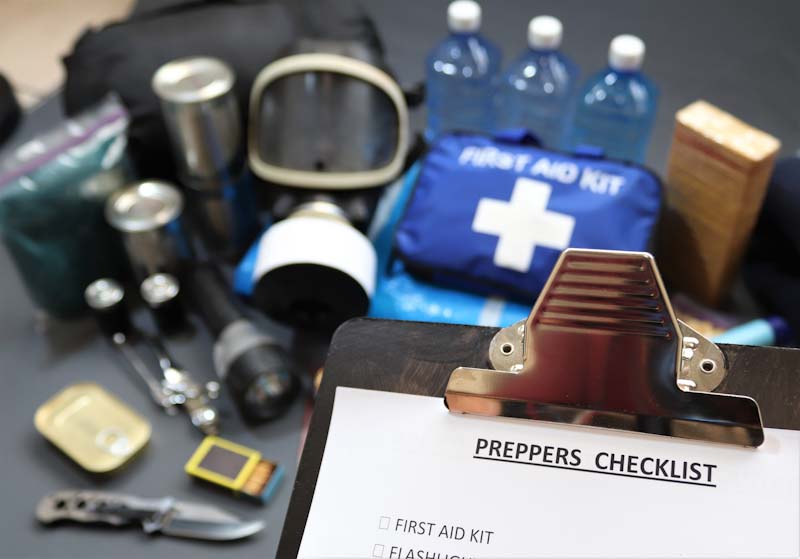




Deborah | August 2, 2020
|
Neither and both. We should all be prepared for the worst, but hope for the best. We are somewhat prepared. Still lacking some things I think we need..
MarkF | August 2, 2020
|
hobby? career? more like a lifestyle.
personal example: i don’t keep a car, even in minnesota winters. i do such for fitness, sanity, and yes, financial reasons. so to me, it’s more about a level of self-sufficiency in my day-to-day. which naturally protects me against a lot of the world’s ups and downs. will soon be releasing ebook on how to do just that. i’ll know soon enough if i can paralay this ‘lifestyle’ into a career. [withoutacar.com is still in the pipeline…] tho i hope to keep my car-free, biking lifestyle going til my dying day regardless.
gotta be careful with turning hobbies into a career. example: you totally love hunting and decide to open some sort of lodge or guide service. not only does one have to deal with all the bookkeeping and government crap associated with that now-business, but a year in, also come to realise “these people are MORONS. they don’t listen. they violate safety protocols. and they’re more interested in drinking beer and yakking in the tree stand than in silently watching for _______”. so the hobby you used to look forward to as your way to get in closer with God and nature is now the source of untold paperwork, irritations, and outright problems. so after another couple of years of this you close the business (hopefully selling it for decent dollar) but now, you don’t ever want to hunt ever again.
i think it’s ok if one gets into a hobby-related line of business (the less directly related, the better). but take care to not lose a soul connection as a result.
Kevin | August 2, 2020
|
If one wants to make a living in the Survival-related market, the absolute first thing to consider is if you have services or products which won’t come back to haunt you, as in dissatisfied customers. Second is, can you actually sell your products or services? If products, are they of decent quality? Remember, there are too many unscrupulous hucksters out there whose only plan is to separate you from your hard-earned money. Others offer “professional” services that end up being so poor, you could have done better on your own.
Having spent 25 years as a Custom Gunsmith, I had to deal with some very unpleasant people. You know the type – like the guy who wants a one-of-a-kind rifle, but expects to pay a Wal-Mart price for it, etc.
Such reasons are why my preps are strictly for myself, and I have no desire to try to make a living by dealing with others, many of whom have no clue about what they need, but will listen to anyone except YOU – especially the “armchair experts” who seem to crawl out of the woodwork on a too-regular basis.
Fabian O. | August 3, 2020
|
Very nice article. I used to have a prepper blog when survivalism was a tin foil hat thing. I saw it growing to the point I could not keep it anymore. I shut it down and in 2018 I wrote a street survival training book based on the lifestyle of the homeless I used to practice and preach here. Now I’m getting requests to “teach” this technique here where I live, and even though I like to spread the word and help others I think that’s more of an individual pursuit, so I’m not yet sure about a course, but will see… Anyway I’m glad more people are looking forward and taking action on being prepared. It can make a difference not only for them but for society in general.
Larry | August 3, 2020
|
What a timely article. I have been considering a move into teaching preparedness and survival skills. With 20 year background in military and law enforcement. I think I have a skill or two to help people become more self reliant. My niche will focus on firearms and personal/ home security training and education. I also have other woodsman/survival skills I can share since I grew up on a rural farm in NE Michigan where we practically lived off the land. My wife and I have been rediscovering and practicing many of the homestead/preparedness skills for the past 10 years and enjoy sharing the fundamentals with others. Any suggestions or additional reading material to guide us in our pursuit would be much appreciated. God Bless.